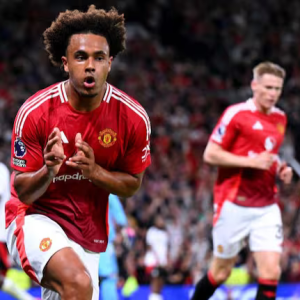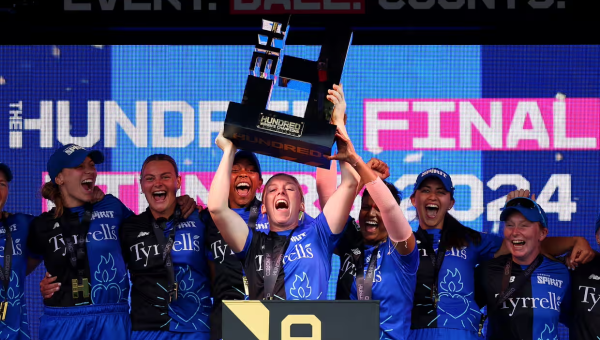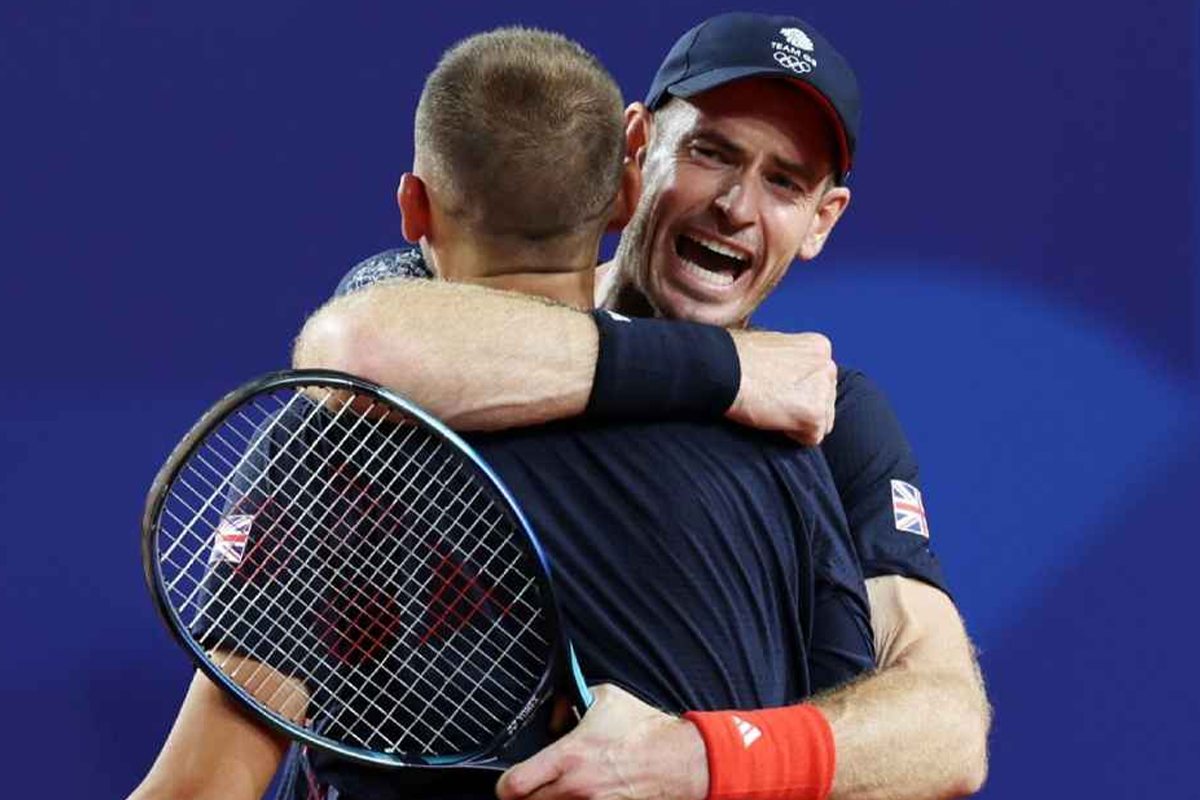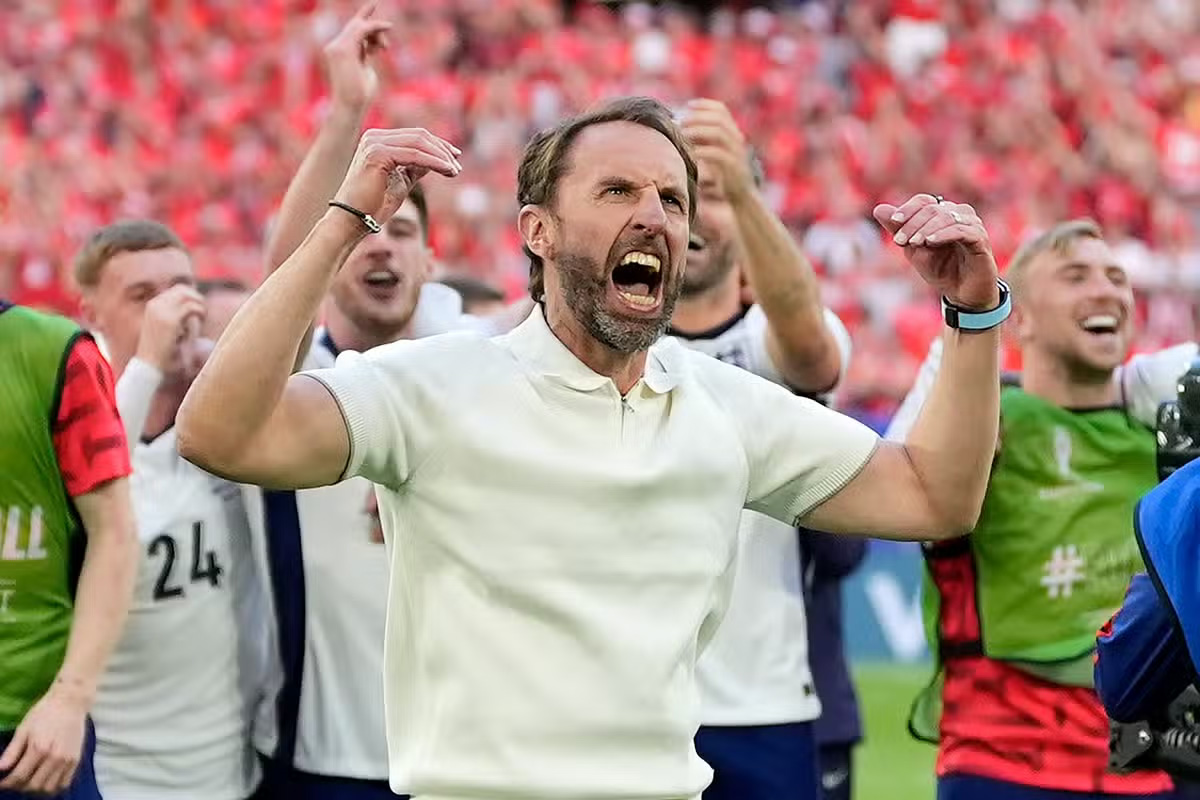It had been an 82 day rest for some, whereas others had just limbered away from their national teams after the Euros and Copa America. After these eventful summer tournaments, anticipation was high leading into the new season. Could Arteta’s Arsenal finally topple Pep’s City? How would Slot perform at Liverpool? Could Ange end Spurs' trophy drought? Would Chelsea’s abundance of new signings finally deliver? And could any of the promoted clubs defy the odds and avoid relegation?
The new season kicked off under the lights at Old Trafford, where Manchester United edged Fulham 1-0. New £36 million signing Zirkzee came off the bench to score the winner in the 87th minute, giving United a deserved victory. Bruno Fernandes was slick in the ‘False 9’ role, and after a slow opening 20 minutes, he created two great chances in the first half, only to be denied by the brilliant Leno. Fulham looked dangerous at the start of the second half through the imposing figure of Traore, but the absence of Palhinha was glaring, both defensively and as an outlet in possession.
In the early Saturday game, Liverpool topped Ipswich 2-0. In a cagey first half for the Reds, the Tractor Boys provided the intensity, passion, and fluidity that were associated with their mightily impressive Championship campaign. But with a few tactical tweaks at half-time, Slot's Liverpool looked a different beast, with two brilliant quick-fire goals from Jota and Salah.
In the 3 o’clock games, Arsenal defeated Wolves 2-0, with Saka and Havertz each contributing a goal and an assist in what was a typically robust performance at the Emirates under Arteta. Under the youngest ever manager in the Premier League, Brighton humbled Everton 3-0, with new signing Minteh shining and providing the assist for Mitoma, before unfortunately being taken off with a head injury. Dyche will be disappointed with Everton’s performance; after their solid defensive displays towards the end of last season, they looked sluggish across the pitch and vulnerable on the counter. Meanwhile, 10-man Newcastle had to be resolute to overcome Southampton 1-0. Schar was sent off early in the game for allegedly head-butting Diaz, and despite playing with an extra man, Southampton impressed with their possession-based approach, racking up 70% possession in the first half. However, a lapse in concentration from Saints goalkeeper Alex McCarthy gifted Newcastle a goal just before halftime. In Nottingham, Semenyo fired late to rescue a point for Bournemouth against Forest, with the match ending 1-1 and canceling out Wood’s opener. In the late Saturday game, Duran scored a late winner as Aston Villa began their Premier League campaign with a 2-1 win over West Ham.
On Super Sunday, the omission of Toney amidst an ongoing transfer saga dominated the build-up to Brentford’s game against Crystal Palace. However, in Toney’s absence, Wissa and Mbeumo stepped up, each scoring in a 2-1 win. Even during Toney’s betting ban, they managed an impressive 21 league goals between them. Crystal Palace is hoping to avoid ‘second season syndrome’ under Glasner, but Brentford is always a difficult place to travel. Eze inexplicably had a terrific free-kick ruled out, which might have shaped the game differently. The defending champions, Man City, beat a new-look Chelsea 2-0 at Stamford Bridge. Kovacic, stepping up in Rodri’s absence, delivered a superb display against his former club, capping it off with a late second-half goal. Haaland had earlier given City the lead in the 18th minute with a fine chip over Sanchez. While Chelsea looked promising in patches, Maresca has a monumental task ahead of him in transforming this young and ever-changing squad into a team capable of challenging for trophies.
Monday Night Football provided a classic, as Leicester battled to a 1-1 draw against Spurs. Tottenham started the first half at a blistering pace, with Maddison pulling the strings in the No. 10 role and Solanke seamlessly slotting into the No. 9 position. Everything seemed to be going smoothly when Porro gave Spurs the lead from a Maddison cross, but they would rue their missed chances in the first half. The momentum shifted after halftime, with the crowd sensing an equalizer was imminent. Jamie Vardy, as so often before, was there to knock home an inviting cross from Fatawu. He even had a golden opportunity to give Leicester a 2-1 lead but was denied by a strong arm from Vicario. Despite the praise Ange has received for his attractive ‘Angeball,’ he emphasized the importance of "outcomes" over merely playing aesthetically pleasing football in his post-match comments.
Team of the week: Flecken (Brentford), Porro (Spurs), Maguire (United), Saliba (Arsenal), Gvardiol (Man City), Onana (Aston Villa), Kovacic (Man City), Joelington (Newcastle), Saka (Arsenal), Havertz (Arsenal), Mitoma (Brighton)


In the thrilling conclusion of the fourth edition of The Hundred, both the Men’s and Women’s finals were contested on the same day at Lord’s, providing a spectacular finish to the tournament.
Men’s Final: Oval Invincibles Retain Their Title
In the Men’s final, the Oval Invincibles (149-7) successfully defended their title, securing a 17-run victory over Southern Brave (130-7). The Brave opted to bowl first, and despite a challenging opening five balls from Craig Overton, Will Jacks came alive, launching Jofra Archer’s first delivery over the boundary for six. Jacks continued his aggressive play, hitting another six off Overton before his innings was ended by Tymal Mills.
The Invincibles' momentum was maintained by tournament MVP Sam Curran and Jordan Cox, who added a vital 46 runs between them, pushing the Invincibles to 93-3. Despite a brief collapse where they lost 4 wickets for just 9 runs in 10 balls, the Invincibles' innings was rescued by Sam’s elder brother, Tom Curran, who added a crucial 24 runs off 11 balls.
In response, Southern Brave started their chase strongly, reaching 58-0, but their innings quickly unraveled, collapsing to 102-7. Saqib Mahmood was instrumental in this downfall, taking three key wickets, including Leus du Plooy, Laurie Evans, and Kieron Pollard. Will Jacks capped off the Invincibles’ impressive bowling performance by dismissing tournament top-scorer James Vince, sealing the victory. Mahmood's performance will likely earn him attention for England’s upcoming series against Australia in mid-September.
Women’s Final: London Spirit Claim Their First Title
In the Women’s final, London Spirit captured their first Hundred title with a dramatic four-wicket victory over Welsh Fire, who chased down 116 runs with just two balls to spare. The match reached a climax when Deepti Sharma lofted a six off Hayley Matthews’ bowling to secure the win. Welsh Fire, having lost the toss, posted 115-8, with Jess Jonassen scoring her first half-century of the tournament. Despite Jonassen's efforts, the Fire struggled against an exceptional bowling display from England spinners Sarah Glenn and Charlie Dean. Glenn struck twice in three balls, while Dean conceded just one run in her first 10 balls.
London Spirit’s chase got off to a rocky start when opener Lanning was bowled for just 2 by an inswinger from Shabnim Ismail. However, captain Heather Knight and Georgia Redmayne steadied the innings with a 31-run partnership. Ismail continued to pose a threat, taking out Lanning, Knight, and Grace Gibson, leaving Spirit at 71-4.
The match went down to the wire, with Sharma and Dean running tight singles before Sharma's decisive six clinched the title for Spirit. The victory, achieved in front of the largest-ever attendance for a women’s cricket match at Lord’s, was particularly special for Knight, who compared it to her triumph with England in the Women’s World Cup final at Lord’s in 2017.
England cruise to 3-0 series win over West Indies
England were emphatic in beating the West Indies by 10 wickets, wrapping up the series in less than 10 days and securing their third sweeping win over the West Indies in Test cricket.
In his debut Test at Lord's, Gus Atkinson made a stunning impression by taking 7 wickets, helping England bowl out the West Indies for just 121. But this test was particularly significant as it marked James Anderson's final appearance in Test cricket. Anderson, England's legendary pacer, took two wickets on the second day in an emotional farewell, concluding a career that spanned under eight different test captains.
England comfortably chased the target, reaching 189-3 by the end of the second day and setting the tone for the series.
Ollie Pope took the spotlight in the second test, with a century as England amassed 416 runs on a chaotic opening day. The West Indies had fought back, taking five wickets for only 74 runs, carrying momentum, and Hodge’s maiden century on the second day left the West Indies trailing by just 65 runs. Over the subsequent days, captain Joe Root and Harry Brook both scored centuries, providing a solid platform for England to secure the second test win. The final day saw a dramatic collapse from the West Indies, who lost five wickets in just six overs, cementing England’s advantage and wrapping up the 2-0 lead.
The third and final test at Edgbaston was highlighted by exceptional performances from Mark Wood and Ben Stokes. Wood’s 5-40 in the second innings dismantled the West Indies' batting lineup, while Stokes hit the fastest half-century in England’s Test history, achieving the feat in just 24 balls. England chased the 82-run target in just 7.2 overs to close out the series.
England’s performance throughout the series showcased both emerging talents and seasoned players, hinting at a promising future for English cricket. However, coach Brendon McCullum noted that despite the team’s progression, they are still not the ‘finished article.’
Sir Andy Murray - one last dance
Rewind to 2016, and Sir Andy Murray had just tasted gold at the Rio Olympics in 2016 after the back of being crowned the Wimbledon champion for the second time in his career. Fast forward to 2024 and it has been a long, tiring eight years of suffering with injuries, which has seen him slip out of the top 100 of the ATP rankings. The first signs of his hip flare-up appeared in June 2017, after he lost to Wawrinka in the French Open semi-final. What followed was a turbulent ride, with his form heavily affected by injury after injury and operation after operation. Needless to say, even if Murray is 'delaying' his retirement for one more shot at an Olympic medal, he has already cemented himself as one of Britain’s most treasured athletes.
Even in an era with Nadal, Federer, and Djokovic—who are not only considered the greatest tennis players of all time but are often in the conversation as being the greatest athletes of all time—Murray had spells of dominance. Between 2012 and 2016, Murray won three Grand Slams, two Olympic gold medals, and was world No. 1 in the ATP rankings for 41 weeks. Here in Paris 2024, Murray has one last opportunity to relive those days and bow out with what would be one of his most treasured sporting achievements.
Murray has teamed up with Dan Evans, who also has a lot to prove. Not only will he feel the weight and pressure of pairing with Murray in his last competition, but for his own personal pride, Evans has never yet reached the pinnacle of tennis’s greatest stage.
They started off their Olympic campaign against the experienced Kei Nishikori and his partner Taro Daniel poorly. The pressure and occasion were clearly getting to them in the first set. Visibly, you could see the physical battle Murray has been having with his body over the years. But, as in many of Murray’s best games over his career, they managed to stay in contention. After losing the first set 2-6, they won the second on a tiebreaker, and then came back from five match points in the third set tiebreaker to win the tie—a great escape. Murray was not done just yet.
In the second round, the British faced the Belgian outfit of Sander Gille and Joran Vliegen, who had just reached their maiden Grand Slam semi-final at Roland Garros, proving stern competition. But Murray and Evans’ game plan had seemingly gone to perfection as they found themselves 6-3 up in the first set and with a match point in the second. Yet, just like in the first game, the duo did it the hard way, conceding the second set but winning the third tiebreaker in dramatic fashion. The Belgians found themselves 8-6 up with two match points before the Brits turned it around to clinch the third and deciding set 11-9. “I don’t think he wants to go home, does he?” chuckled Evans.
And so they venture on into the quarter-finals. It’s far-reaching, but a match-up against ‘Nadalcarez’ is beyond the horizon.
High Hopes and Heartbreaks: England's Euros Journey Under Gareth Southgate
Expectations for England going into the Euros had never been higher. The successes of the 2018 World Cup, 2020 Euros, and 2022 World Cup demonstrated Gareth Southgate's ability to galvanize both a dressing room and a nation desperate for football to 'come home.' Yet, the heartaches of previous tournaments only added to the desperation for tangible success.
Kane had just racked up 36 goals in his debut season in the Bundesliga. Foden had won the Premier League Player of the Year, Bellingham had already placed himself among Madrid's finest, and the likes of Saka and Rice had their best seasons to date. Meanwhile, players like Palmer, Gordon, and Mainoo had incredibly impressive breakout seasons for top Premier League clubs. There was an abundance of individual talent that needed to be harnessed, but how would Southgate integrate all this attacking talent with his defensive philosophy that had brought previous tournament successes?
Group stage struggles
England's tournament began with a fantastic opening 20 minutes, Bellingham heading home from a deflected Saka cross. However, the rest of the game had a different feel. Too many times, England had taken the lead in previous tournaments only to fall back, as seen in the Euro 2020 final against Italy and the 2018 World Cup semi-final against Croatia. Despite holding onto the win, doubts lingered among fans, with fingers already being pointed at Southgate. They had seen too many times that while this style had the potential to go deep into tournaments, the decisions that made previous England teams fall short were still evident. The subsequent group stage games were uninspiring and dull — England had gone out to not lose the game, instead of trying to win. But despite the on pitch chaos, England somehow topped the group and found themselves on the favourable side of the draw yet again.
Individual brilliance
The knock-outs, and all the cracks that appeared in the group stage burst open. Already, half the nation resigned to defeat. But then… Bellingham produced a moment of magic and suddenly the tide shifted — England were still somehow in this tournament. And they continued to remain in the tournament. The quarter finals… and the individual quality and technical ability of Englands personnel was personified in each penalty. It exemplified there had been a shift in landscape within the players being bought through the academy ranks. This win produced glimpses of positivity and finally… the feel good factor that had been so pervasive from past tournaments felt alive again. Against the Netherlands Instead of Toney being bought on vs Slovakia, it was Watkins turn. England left it late but now had a chance of redemption; the Euro 2020 loss could be rectified. But this wasn’t to be and Spain proved too much, and England fell short once again. In a way, this tournament summed up Southgate’s reign—lacking the tactical acumen of Pep or Klopp, he still created a cohesive group that stuck together despite outside noise. Even after the final, the loud criticism displayed in its true colours, why managing England is the hardest job in football.
Inefficient tactics
Despite the individual brilliance, England's attack faced problems during the tournament. Kane, Foden, and Bellingham often dropped deep to get the ball, crowding the space in the middle and sometimes leaving Saka as the only forward outlet. In the first few games, this heavily dented Trent's passing ability, who flourishes from distributing long balls into high areas. This compactness left areas further up the pitch free, which compounded into England's low xG, and despite dominating possession, they were restricted to their own half. To overcome these issues, Trippier was often left high and wide, and could not be effective, as after all, he was a right-back playing as a left-back, limiting his creative freedom. England's goals did come from individual brilliance rather than a build-up of momentum or an effective press. England's out-of-possession press had come under scrutiny from Gary Lineker and other pundits at the BBC, who rightly questioned the philosophy behind it. In order to effectively press, everyone has to be 100% committed, which England were not. Whether this was due to confusing instructions or naivety, no one knew, but it was surprising that all these players, who seemed tactically clued up at the club level, could be so disjointed. Once England led, they were not able to take control of the game. There was no sense of security — and while they were able to hold possession in their half and drop deep, momentum always shifted in favor of the opponents.
Photo courtesy of SkySports.com
But in defense of Southgate, England were rigid. They had the lowest rate of xG against per 90 minutes of all teams. They were robust and pragmatic, and were always able to stay competitive in games. But there needs to be a healthy balance in providing entertainment and being ugly in tournaments — a balance that resulted in Spain's triumph.
Relationship with the fans
This was the first tournament under Southgate where there was a stifled relationship between the England camp and its fans. Even before the tournament, the sounds of 'it’s coming home' were muted. Negativity from the outside pierced into the camp. After games, instead of 'Sweet Caroline,' boos were loud, and beer cups were thrown towards Southgate. There was a clear fracture between the fans and this England squad. Perhaps, after eight years, people were becoming 'hungover' from Southgate’s football. The players felt this too. “The players have got to take some of the blame,” said Foden. After the Slovakia game, Bellingham noted, ”There’s a really intense pressure. The fans expect a lot from us, regardless of what happened in recent tournaments or years and years ago."
Southgates legacy
Statistically, Southgate leaves the role of England manager as the most successful since Alf Ramsay. He undoubtedly transformed the culture within the England dressing room to an overwhelmingly positive one, which fed into the positive results on the pitch. While he has faced criticism for his tactics, in-game decision making, and just falling short of eternal glory, he has also produced some of the best memories England fans can cherish. The Colombian penalties in 2018 were England's first-ever penalty shoot-out win in the World Cup. The 2-0 win vs Germany in Euro 2020 was one of the great knockout performances. And in this tournament, despite the poor performances, Bellingham's acrobatics, the composed penalties vs Switzerland, Watkins' strike vs the Netherlands, all provided blissful moments that will be remembered forever. He transformed this England team from a mockery to a team that is now feared, a team that can go on to compete to the end of tournaments, and a team who can all put their club rivalry aside to create a positive, harmonious atmosphere.
Perhaps Southgate’s biggest success came off the pitch. He instilled an inclusive, caring mindset, and has not shied away from social and racial issues that are prevalent, but always overlooked, in the UK. Whether the next England manager plays the more free-flowing football England fans are desperate to see, they can thank Southgate for the culture in which he laid the foundations. For that, Southgate has cemented himself as a legend of English football.


